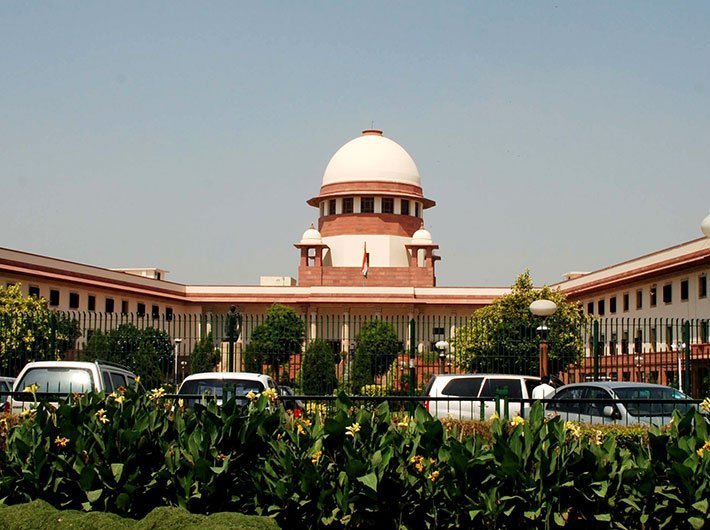Weed out frivolous cases at pre-filing stage, raise awareness about alternative dispute resolution methods
Speedy trial is an integral and essential part of the fundamental right to life and liberty enshrined in Article 21 of the Indian Constitution. However, delay in disposal of cases due to the upsurge in the pendency of cases results in denial of this right.
A study by PRS Legislative Research says that as of September 15, 2021, over 4.5 crore cases were pending across all courts in India. Between 2010 and 2020, pendency across all courts grew by 2.8% annually. [See: https://prsindia.org/policy/vital-stats/pendency-and-vacancies-in-the-judiciary]
The two major reasons for the pendency of cases in Indian courts are the increasing number of meritless and frivolous cases and the lack of awareness about alternative dispute resolution methods.
Meritless and frivolous cases
A large number of meritless and frivolous cases are being filed every year which is leading to a waste of both time and money for the litigants as well as the courts. A majority of the court’s cause list consists of cases that do not proceed to the regular stage of hearings. Only 11% of cases filed before the Supreme Court proceed past the admissions stage to the regular stage of hearings. [See: https://www.scobserver.in/journal/sc-admits-less-than-15-of-filed-cases/#:~:text=Only%2011%25%20of%20cases%20filed,the%20regular%20stage%20of%20hearings.&text=When%20a%20case%20is%20first,to%20%27admit%27%20the%20case.] This indicates that pendency in the Supreme Court has built up in the preliminary stage of the hearings and it spends a large portion of its time on cases that do not raise substantial issues. Meritless and frivolous cases not only clog arteries of the justice delivery system but also deprive genuine litigants of their right to a speedy trial.
The main reason for filing meritless or frivolous cases by the litigants is their limited knowledge of law and procedure. A common man does not understand the law easily. On the other hand, laws are complex and difficult to access and understand. Especially in India, barriers of language, education and technological reach add to the problem of lack of legal awareness.
Therefore, it becomes the lawyer’s responsibility to give proper advice to the clients at the pre-filing stage and not bring a case to the court of law unless there is a basis in law and fact for doing so. They must keep in mind not only their duty to their clients but also their duty to the courts, to society and to the law.
However, it has been observed that many lawyers don’t give honest advice to the clients with respect to the merits, maintainability and likely outcome of their case and available alternative dispute resolution methods. The Supreme Court also, at times, expressed grave concern over the trend of lawyers giving dishonest advice to clients. Chief Justice of India N. V. Ramana, while addressing a convocation ceremony held last year at the Damodaram Sanjivayya National Law University, said that the education system was currently not equipped to build the character of the students or to develop social consciousness and responsibility. He also said the poor quality of legal education, along with other issues, was to be blamed for the staggering pendency of cases across courts in the country. [See: https://www.indiatoday.in/education-today/news/story/need-to-overhaul-education-system-justice-ramana-1787259-2021-04-05] Moreover, the Chairman of Bar Council of India, Manan Kumar Mishra, had said in 2015 that around 20 percent of practising lawyers in India don’t have a valid law degree. [See: https://timesofindia.indiatimes.com/india/30-of-lawyers-in-india-are-fake-bar-council-chief-says/articleshow/48215119.cms] One cannot expect proper and honest advice from such poorly educated and unqualified lawyers.
Unawareness of alternative dispute resolution methods
Lack of knowledge about alternative dispute resolution methods among the litigants is another reason for pendency. Lawyers can play an important role in reducing the pendency by advising their clients to settle their disputes at the pre-litigation stage itself. However, many lawyers are not well trained about alternative dispute resolution methods and because of the lack of expertise, they can’t suggest this mechanism effectively.
How legal services authorities can play an important role in lowering the pendency of cases
If proper and impartial legal advice is given at the pre-filing stage through an independent expert body, one can check the merits and validity of his/her claims and available alternative dispute resolution methods before initiating any legal action.
Legal services authorities provide free legal services but are limited to only the weaker sections of society. There is a need to make available the legal advice service given at the pre-filing stage by the legal services authorities for other sections of the society as well.
Accordingly, legal services authorities constituted at national, state and district levels, legal services committees constituted at taluka/sub-divisional level and high court and Supreme Court legal services committees shall render legal advice service at the pre-filing stage, free or at a minimal charge, to all Indian citizens.
A request for availing legal advice at the pre-filling stage shall be allowed to be made in writing, verbally or online to the concerned legal services authority.
The officials of the legal services authorities shall give advice on the merits, maintainability and likely outcome of the case through its preliminary assessment, suggest appropriate alternative dispute resolution methods and warn about the consequences of filing meritless and frivolous cases. The legal advice process shall be confidential and the advice shall not be binding upon the advisees.
Proper and impartial legal advice service at the pre-filing stage would not only help the advisees to decide whether to initiate legal action or not but also promote pre-litigation dispute settlement, thereby reducing the pendency of cases.
Therefore, in order to discourage the filing of meritless and frivolous cases and encourage the use of alternative dispute resolution methods so as to reduce the pendency of cases and protect the right to speedy trial of genuine litigants, the legal services authorities should make available the legal advice service given at pre-filing stage to all Indian citizens.
Dr. Akshay Bajad is a Mumbai-based independent researcher of good governance and public policy.
